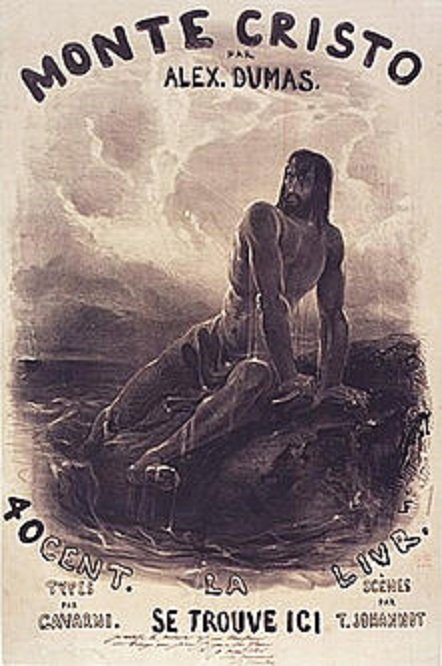Life and creativity of Alexander Dumas /part 3/
After realizing that the "tragedy" genre is difficult, Dumas makes a decisive choice that predetermines the direction of his life: he devotes himself totally to the development of the genre "novel", especially his fashion subtype in the era of Romanticism - the "historical novel". From 1836, Dumas hugged his writer's talent in developing into another subspecies the genre "novel" - "the novel in the sub-region". He offers every reader, through his favorite newspaper, a somewhat theatrical "matinee" (morning performance) that he can live in his home, conveniently located in his favorite armchair. The state that Dumas accumulates from "novels in a sublime" allows him to organize the construction of his own theater - "Historical Theater". In it he intends to place the stage adaptations of his novels. But Dumas private theater did not last long. In 1850, the then newspapers announced loudly the bankruptcy of the theatrical "House of Dumas", which exhausts the romantic splendor of the enterprising writer to be the sole leader of the tastes of the then readers and viewers.
After renouncing the glory of the prosperous tragic poet, Dumas founded a kind of literary production factory. Freed from the limitations imposed by the theatrical scene, he directs himself to the novel narrative, which is far more relevant to the writer's talent set in nature. Dumas intends to provide in the newly founded "Revue des Deux Mondes", in which they prefer to place historical articles or travel stories, a detailed description of the Mediterranean voyage that he is about to take. But, left without enough money, he decided in 1835 to tour at least Italy. During this excursion, he gained enough impressions and began publishing them in his book "Impressions of a Journey." In the following year, the famous Parisian journalist Emil de Jardin founded the Press Press (La Presse) and invited the fictional writer Dumas to publish "novels in a sublime" in his publication. This tradition has already been introduced in the French press by the French novelist Honore de Balzac of the 1930s. Attributed to his admiration for the talent of English novelist Walter Scott, Alexander Dumas, devotes himself to the creation of historical fiction novels. For about twelve years, he published approximately eighty novels, which at the time were eagerly awaited by publishers of prestigious Parisian newspapers. In the 40s of the century, the term "nigger" appeared in the literary jargon of Parisian artists, which invoked unnamed collaborators of fashion novels. The names of these workers are rarely mentioned today, but it is known that Dumas used a wide array of "niggers" that gave him plotting, and occasionally told him the most appropriate technology to recreate them.
Many of the novels created by Dumas today are only referred to as titles, but they are not just those of his works that have constantly provoked the interest of both publishers and readers from then on to the present day. Dumas has the ability to re-create the texts originally designed by other authors and to fill them with the fascinating dynamics of his adventures and entertaining twists. Regular readers were eagerly awaiting another episode of his "novels", in which the storyteller has always been betrayed by some dramatic situation. Thus, the writer quickly buys a great state, which is soon wasting, as he has a volition and carefree life. Dumas lived as spoiled by his success as a writer, Bonvivan, who often changed his lovers and showed no attraction to the comfort of the country. The marriages he made to legalize a longer love relationship did not last for more than five years. In 1847. Dumas left his sumptuous apartment in Paris to live in his castle, furnished in the style of "Monte Cristo" near the French port town of Port-Marley, whose expensive maintenance eventually ruins his vain holder. Thus, when a new Revolution broke out in France in February 1848, the former ardent defender of the Republic, who appeared in the barricades in July 1830, proved to be immune to the "revolutionary enthusiasm" of the crowds. Dumas once again succumbs to the temptation to set up his own newspaper and even puts forward his candidacy for a deputy as a "worker of thought," but soon becomes panicked by the long-standing public riots that emptied the theater.

You got a 41.81% upvote from @upmewhale courtesy of @godflesh!
Earn 100% earning payout by delegating SP to @upmewhale. Visit http://www.upmewhale.com for details!
nice one
https://steemit.com/art/@harrysaini/the-scary-dream-shadow
life is a story
Excuse me, but in this case does "nigger"="ghostwriter"?
Dumas was part African, from I think it was his father who was of mixed decent/Caribbean dude... I love the Count of Monté Christo, especially the cave scene, when he meets this mystical middle-eastern pirate king and they get stoned...